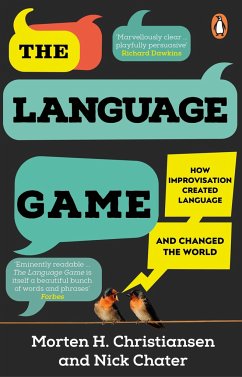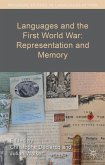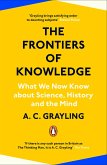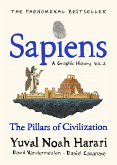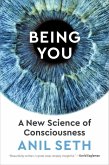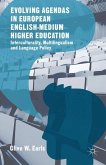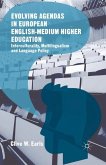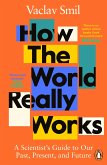'Marvellously clear... playfully persuasive' Richard Dawkins
'Full of Fascinating details. A delight to read.' Tim Harford
'Highly original and convincing ... a delight to read!' - Daniel Everett
What is language?
Why do we have it?
Why does that matter?
Language is perhaps humanity's most astonishing accomplishment and one that remains poorly understood.
Upending centuries of scholarship (including, most recently, Chomsky and Pinker) The Language Game shows how people learn to talk not by acquiring fixed meanings and rules, but by picking up, reusing, and recombining countless linguistic fragments in novel ways.
Drawing on entertaining and persuasive examples from across the world the book explains:
· How our short-lived memory copes with the on-rushing deluge of sound that is everyday speech.
· Why it is that language is such a challenge for language scientists but learnt effortlessly by toddlers.
· Why the languages of the world are so spectacularly varied---and why no two people speak quite the same language.
· Why humans have language, but chimps don't.
· How language gave us a big brain and changed the course of evolution.
· How language doesn't limit, but does shape, how we think.
·And ultimately, why all we know about language should give us hope.
Christiansen and Chater's The Language Game draws on a fascinating range of examples to show the way language works, has shaped our evolution and is critical to our future.
'Full of Fascinating details. A delight to read.' Tim Harford
'Highly original and convincing ... a delight to read!' - Daniel Everett
What is language?
Why do we have it?
Why does that matter?
Language is perhaps humanity's most astonishing accomplishment and one that remains poorly understood.
Upending centuries of scholarship (including, most recently, Chomsky and Pinker) The Language Game shows how people learn to talk not by acquiring fixed meanings and rules, but by picking up, reusing, and recombining countless linguistic fragments in novel ways.
Drawing on entertaining and persuasive examples from across the world the book explains:
· How our short-lived memory copes with the on-rushing deluge of sound that is everyday speech.
· Why it is that language is such a challenge for language scientists but learnt effortlessly by toddlers.
· Why the languages of the world are so spectacularly varied---and why no two people speak quite the same language.
· Why humans have language, but chimps don't.
· How language gave us a big brain and changed the course of evolution.
· How language doesn't limit, but does shape, how we think.
·And ultimately, why all we know about language should give us hope.
Christiansen and Chater's The Language Game draws on a fascinating range of examples to show the way language works, has shaped our evolution and is critical to our future.

